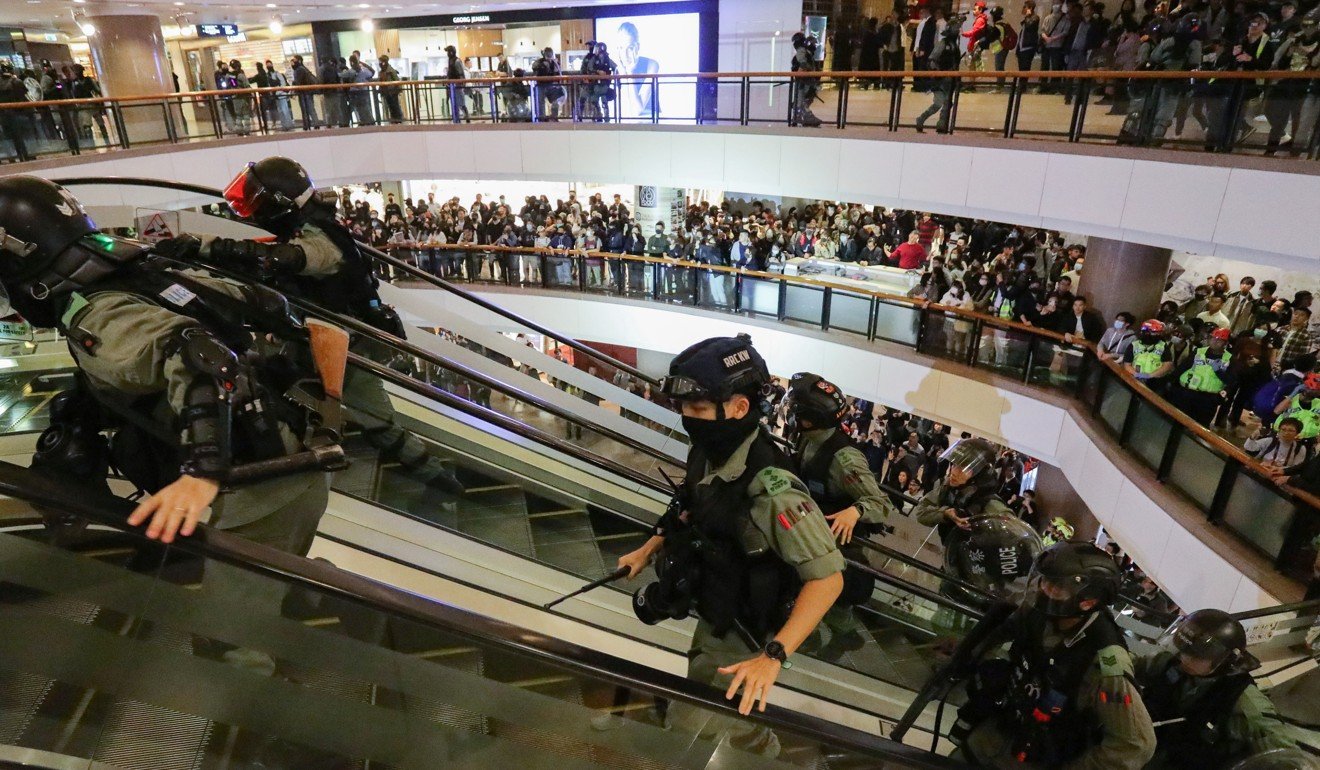Luxury brands use pop-up stores to skirt Hong Kong's sky-high retail rents amid consumer spending smashed by protests
https://www.scmp.com/property/hong-kong-china/article/3045829/luxury-brands-use-pop-stores-skirt-hong-kongs-sky-high?utm_medium=partner&utm_campaign=contentexchange&utm_source=EdgeProp |
The protest movement that has gripped Hong Kong since last summer has devastated the retail sector, forcing many shops to close as consumer sentiment and visitor numbers have dropped through the floor.
But some luxury brands " and the shopping malls that house them " have been fighting back using their latest weapon: the pop-up store.
These temporary retail spaces, which are often themed or heavily branded to tie in with a fad or an event, have been an increasingly common sight in Hong Kong's most popular shopping districts.
Advertisement
They are typically short-term leases, in which the tenant pays a fraction of the standard rent for the area. This gives vendors a chance to cash in at lucrative times such as Christmas, or test the water in a new market, without having to commit to the expense of opening a permanent shop during times of uncertainty.
For mall operators, pop-ups can serve the useful purpose of occupying otherwise vacant units.
"Shopping centres keep changing their strategy, turning their vacant shops into pop-up stores," said Edwin Lee, founder and chief executive of Bridgeway Prime Shop Fund Management. "For some landlords, as vacant shops do not look good, they consider [pop-up tenants] as guardians for their shops. This is why they would ask tenants to occupy the shops for a short time."
Recent examples in Hong Kong include Gucci's pop-up store in Harbour City in January and Hang Lung Properties' eye-catching space themed on Disney's Mickey Mouse character and offering gifts designed by Japanese brand FDMTL, in Fashion Walk in Causeway Bay over the Christmas period. Wharf Reic's Times Square opened a Chanel J12 watch pop-up store in July.
Some brands and landlords use pop-up stores to test the water before committing to long leases, said Terence Chan, senior director of retail at JLL.

Riot police enter the Harbour City shopping mall in Tsim Sha Tsui after Christmas Eve protests broke out. Photo: May Tse alt=Riot police enter the Harbour City shopping mall in Tsim Sha Tsui after Christmas Eve protests broke out. Photo: May Tse
"Especially now when the market is not so good, pop-up stores or short leases became even more prevalent because the resources needed are much lower than leases of three years. New brands would like to test the market with limited expenses."
Chan said the terms for such shops tend to be more flexible, with leases ranging from seven days to six months, and sizes anywhere from 100 sq ft to 3,000 sq ft.
Advertisement
The number of pop-up stores surged after the landslide victory of the pan-democratic party in local elections in late November. A relative calm returned to the streets, which reduced the number of times shops had to halt their operations, Lee said.
Shopping malls had become a regular target of vandals, and consequently the scene of regular battles between hardcore protesters and police. During the height of the clashes, vendors had not even risked pop-up shops.
"[After the elections] pop-up stores blossomed. There are many pop-up stores now," Lee said.
"Their rents are just about 20 to 30 per cent of normal rents, or sometimes the landlords share 8 to 15 per cent of the revenue with the tenants if no [base] rent is required."
For fashion retailers in high-end shopping centres like Harbour City and Times Square, the normal rent per square foot is around HK$500, though restaurants and tenants of big shops may pay less.
JLL forecasts that overall rents in shopping centres will fall 5 per cent year on year while those of high street shops will plummet 15 per cent.
Midland Realty paid HK$187.5 per square foot last month for a pop-up store in Central's Pacific House, featuring its homes in Macau, a total monthly rent of about HK$150,000 (US$19,313) for about 800 sq ft, said Tony Lo, director of shops at Midland. The space used to house pop-up stores for jeans and the Peninsula Hotel's moon cakes.
Advertisement
"Pop-up stores are very seasonal. They need to look for very prime locations that let them rent for short," said Lo. "Such a business opportunity has emerged."
This article originally appeared in the South China Morning Post (SCMP), the most authoritative voice reporting on China and Asia for more than a century. For more SCMP stories, please explore the SCMP app or visit the SCMP's Facebook and Twitter pages. Copyright © 2020 South China Morning Post Publishers Ltd. All rights reserved.
Copyright (c) 2020. South China Morning Post Publishers Ltd. All rights reserved.
https://www.edgeprop.sg/property-news/luxury-brands-use-pop-stores-skirt-hong-kongs-sky-high-retail-rents-amid-consumer-spending-smashed


Follow Us
Follow our channels to receive property news updates 24/7 round the clock.
Subscribe to our newsletter
Advertisement
Advertisement
Advertisement
Search Articles